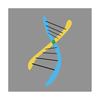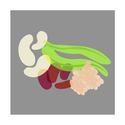
by Steven N. Austad, Ph.D. - Scientific Director, American Federation for Aging Research (AFAR) , Distinguished Professor and Chair, Department of Biology, University of Alabama at Birmingham
From specials on National Geographic channel to covers of Time Magazine, The Atlantic, and The Economist, and social media streams on the health of our presidential candidates, aging is more in the public's eye than ever. And rightly so. There are more Americans over the age of 65 than ever before, and 10 thousand more baby boomers are turning 65 every day.
You may have heard recently of a study claiming that the maximum human lifespan is 115 years. That was the latest volley in a long-running battle among demographers about whether there is a limit to human longevity and, if so, what it is. There is no disputing, though, that average life expectancy continues to increase, and that it is increasing faster than health expectancy is. The mission of the American Federation for Aging Research (AFAR), of which I'm Scientific Director, is to enhance and prolong health, or healthspan. And the longer we can remain in good health, the less we'll have to spend on healthcare.
In the 35 years that AFAR has supported health-extending research, there have been a number of discoveries that are moving from the laboratory into our lives.
AFAR is proud to share some of them in our column here in HuffPost50, where I'll talk about the discoveries and discourse shaping how we can age in good health.
To kick off, let's look at six discoveries that have changed the field of aging research, and in doing so, are changing the way we age.
 CHANGES TO SINGLE GENES CAN SLOW AGING.
CHANGES TO SINGLE GENES CAN SLOW AGING.
Who would have guessed that altering the activity of only a single gene could dramatically affect aging? Several dozen of such genes are now known. In the most spectacular case, disabling one gene increases mouse longevity by more than 50%.
 REMOVING CELLS DAMAGED BY AGING IMPROVES HEALTH.
REMOVING CELLS DAMAGED BY AGING IMPROVES HEALTH.
As we age, some of our cells, which once could replicate to repair damage to our tissues, permanently stop dividing when they themselves become damaged. These senescent cells have recently been discovered to cause more damage by secreting harmful molecules. A long-time controversy has been whether senescent cells really had any damaging impact on us. We now know that they do--and why. Most exciting is the further discovery that removing these senescent cells not only preserves heart and kidney health but also prevents cancer in mice. The next step will be testing whether these health benefits can be extended to humans.

YOUNG BLOOD HAS REJUVENATING PROPERTIES.
Maybe Dracula had a point. Several research groups have now shown that transfusing the blood of young mice into older mice rejuvenates the older's muscles, heart, and brain. Although the identity of the molecules in young blood that causes this rejuvenation is still uncertain, researchers are curious to learn if young humans have similar rejuvenation molecules in their blood. In fact, preliminary human trials on the rejuvenating effects of young blood are already underway.

EXERCISE HAS MORE HEALTH BENEFITS THAN ANYONE EXPECTED.
It's hardly news that exercise improves cardiovascular health, reduces body fat, and lowers blood sugar, but recent research shows that exercise also preserves brain health. If it were a drug, exercise would be considered a miracle drug for health preservation. The price is right too.
RESTRICTING CERTAIN FOODS--WITHOUT RESTRICTING CALORIES-- MAY PRESERVE HEALTH.
For many years, researchers have known that dramatically reducing calories dramatically preserves health, at least in laboratory animals. But extreme dieting was never considered to be a viable prescription for people. We like to eat too much. New research, however, suggests that eating less of certain food components such as protein, or even less of just a certain amino acid, methionine, may preserve health without calorie restriction.

SEVERAL DRUGS HAVE ALREADY BEEN DISCOVERED THAT PRESERVE LIFE AND HEALTH IN MICE.
Six of the first nineteen drugs tested in mice have been successful at extending life. This is a stunning success rate, which affirms how deeply researchers now understand the underlying biology of aging. The most thoroughly studied of these drugs, rapamycin, has been shown to delay mouse versions of Alzheimer's disease and even slow normal age-related where-did-I-leave-the-car-keys memory decline. In several studies, it also preserved heart function, prevented several types of cancer, and improved vaccine response in older adults. More drugs identified from basic aging research are in the pipeline.
What's next? It is now time to move these discoveries from the laboratory into human trials. The first such trial, the TAME (Targeting Aging Through Metformin) study, will test whether metformin--a drug currently prescribed as the first line of defense against Type II (adult onset) diabetes and already taken by millions of people--can delay the onset of multiple age-related diseases as a group. TAME is now in its planning stages and will open the door to more trials based on other promising drugs.
The field of aging research has learned a lot in just over thirty years. Just imagine where we'll be in the next thirty, ten, or even five. Thankfully, most of us will be around long enough to find out.

